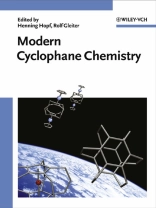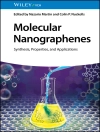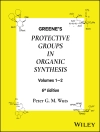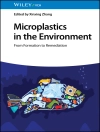Here, the editors Rolf Gleiter and Henning Hopf present an excellent overview of all the important aspects and latest results in cyclophane chemistry. Clearly structured and covering the entire range, the book introduces readers to the most recent research in the field. Twenty chapters, written by well-known scientists, cover in particular:
– synthesis of carbo- and heterocyclic cyclophanes and metallocenophanes,
– structural and spectroscopic properties of cyclophanes,
– current and future applications in synthesis and material science,
– novel reactions of cyclophanes,
– use of cyclophanes as building blocks in supramolecular chemistry
for this fascinating class of compounds.
Thus, this is not only an extremely valuable source of information for synthetic organic chemists, but also a ready reference for scientists working in related fields of arene chemistry, stereoselective synthesis, material science, and bioorganic chemistry.
Tabella dei contenuti
a) Synthesis and Reactions
Cyclophynes
Heteraphanes
Highly Strained Cyclophanes
Superphanes
Carbon-Bridged Ferrocenophanes
Endohedral Metalcomplexes of Cyclophanes
Intramolecular Reactions in Cyclophanes
Reactive Intermediates from Cyclophanes
b) Structures
X-Ray Crystal Structures of Porphyrinophanes as Model Compounds for Photoinduced Electron Transfer
Ultraviolet Photoelectron Spectra of Cyclophanes
UV/Vis Spectra of Cyclophanes
Electronic Circular Dichroism of Cyclophanes
Fully Conjugated Beltenes (Beltlike and Tubular Aromatics)
Molecular Electrochemistry of Cyclophanes
NMR Spectra of Cyclophanes
c) Applications
Strained Heteroatom-Bridged Metallocenophanes
Cyclophanes as Templates in Stereoselective Synthesis
Vapor-Based Polymerization of Functionalized [2, 2] Paracyclophanes: A Unique Approach towards Surface-Engineered Microenvironments
From Cyclophanes to Molecular Machines
Molecular Recognition Studies with Cyclophane Receptors in Aqueous Solutions
Circa l’autore
Born in 1940, Henning Hopf is Director of the Institute for Organic Chemistry at the TU Braunschweig. After studying chemistry in Goettingen and at the University of Wisconsin in Madison, where he gained his doctorate 1967, he qualified as a professor in 1972 at the University of Karlsruhe. Three years later he was offered a chair at the University of Wuerzburg and from there followed an offer of a professorship at Braunschweig in 1979. His
main areas of research concern hydrocarbon chemistry (alkines, allenes, cumulenes, aromats, cyclophanes, polyolefines, etc.) and mechanistic investigations of high-temperature reactions.
Rolf Gleiter is professor of chemistry at the Universitat Heidelberg. He studied chemistry and finished his doctoral thesis under the supervision of F. Effenberger in Stuttgart in 1964. From 1965 – 1968 he did postdoctoral work in the US, one year with P. v. R. Schleyer at Princeton and two years with R. Hoffmann at Cornell. He completed his habilitation with E. Heilbronner in Basel in 1972. In 1973 he moved as full professor to TU Darmstadt. In 1979 he took his present position. R. Gleiter is interested in intra- and intermolecular bonding properties by synthesizing model systems and investigation of their interactions by physical measurements supported by quantum chemical calculations.












